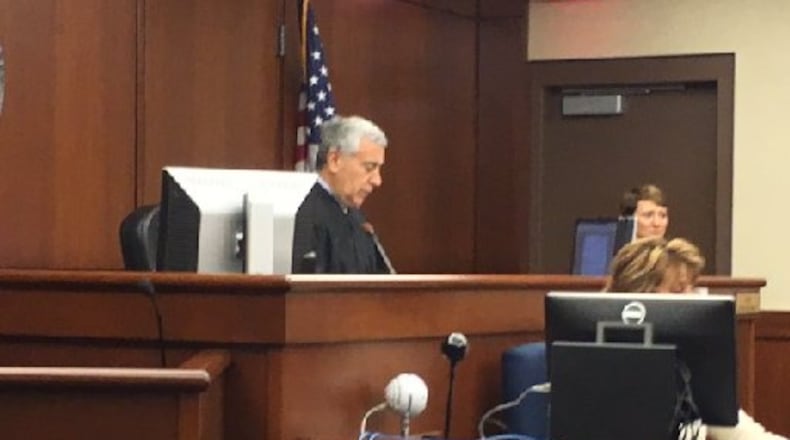RELATED: Teen accused of killing Fairmont student faces $1M bond
Here’s a breakdown of the decisions:
-Dec. 22 ruling. The Supreme Court ruled the mandatory transfer of juveniles to adult courts unconstitutional stemming from the 2014 conviction of Matthew Aalim. The Dayton teen was 16 when he was arrested and indicted on two counts of aggravated robbery with a deadly weapon, court records show.
In 2014, juvenile cases were transferred to adult court if the defendant was at least 16 years old and the charges involved a firearm, according to court officials.
RELATED: Lawyer for teen: Client will be tried as adult
Locally, this ruling impacted a handful of cases, including the two murder charges and related counts against then-16-year-old Kylen Jamal Gregory. The Kettering teen is accused in the September 2016 fatal shooting of Fairmont High School student Ronnie Bowers shortly after both left AlterFest.
The case was assigned to county Juvenile Court Judge Anthony Capizzi. Because of the Supreme Court’s December decision, Gregory’s case - which appeared to be on its way to becoming a mandatory transfer - required a hearing to see if he was amenable to being tried as a juvenile.
MORE: Miamisburg woman found dead in alley shot in head
-May 25 ruling. The Supreme Court re-examined the Aalim case at the request of the Montgomery County Prosecutor's Office. The court, which had two new members, reversed the December ruling, making the Gregory hearing – which had started May 24 and continued until July 7 – moot. He will be tried as an adult.
-July 27 ruling. This stems from a Montgomery County case known only in the ruling as the State vs. D.B. It states that if a juvenile has been found guilty in adult court for at least one offense that qualifies as a mandatory transfer offense, the adult court shall sentence the juvenile for all convictions in the case.
DOWNLOAD OUR MOBILE APPS FOR LATEST BREAKING NEWS
This ruling overturned a ruling by the 2nd District Court of Appeals. The appeals court said additional charges that were not subject to mandatory transfer then had to go back to the juvenile court for a hearing to decide the disposition of the other charges.
About the Author

